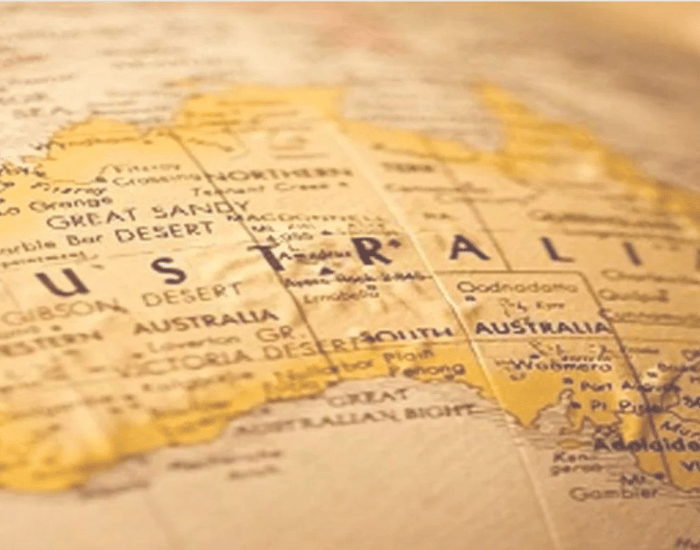Table of Contents
How do new sex offender laws affect Australian society?
In December 2017, a momentous ruling occurred in Australia with the introduction of new sex offender laws. The new law barring registered sex offenders from international travel has received passionate responses from both advocates of the law and staunch opposers. Australia is the first country in the world to pass the anti-sex tourism law, stipulating that a registered sex offender is not permitted to travel overseas. In addition, that “Australians who commit child sex offences while overseas can be investigated and prosecuted under Australian law.”
The New York Times reported on an Australian man being stopped at Sydney Airport. Even the international community has been very vocal on social media.
Many questions arise as a result of this ruling and its application. Consider for a moment the fact that most sex offenders are known to victims and in many unfortunate cases are family members. What impact will this have on a family? Should a mother be allowed to take a child and remove the child from the other parent? Does the sex offender have the right to see his own child for example? By creating this law, is the law protecting each person’s rights or what many might argue, does the rights of the victim supersede the rights of the offender?
This new law has brought some of these considerations into question. Technically it might prevent a registered sex offender from seeing his own child. A mother can decide to take her child out of the country and yet the registered offender won’t be permitted to travel overseas to see the child.
Anti-sex tourism law and its impact overseas
It has been argued that this law is supposed to prevent registered sex offenders from travelling to South East Asia and abusing children there.
It’s important to think globally and the child sex offender law is doing just that. By refusing international travel, offenders will be prevented from travelling to countries where laws are more lax. South East Asia and Thailand in particular, are in close proximity to Australia and have been easy places to engage in heinous acts. Arnaud Herrmann of the Accor Hotel group recently commented that in “Southeast Asia, hotel managers were frequently confronted with child sex tourism”. In an effort to curtail such atrocities, many people are thankful for this recent law.
The New York Times’ twitter page is filled with hundreds of comments in relation to the recent article about the new Australian law.
Previous child offender laws in Australia
The Australian Criminal Intelligence Commission created the National child offender system (NCOS) enabling Australian police to record and share information about child sex offenders. The NCOS keeps police informed about offenders’ “whereabouts and other personal details” after they “are released into the community”. The aim of the legislation was to protect the community and minimise the probability of repeat offences by the sex offender. From a prosecutorial and Sentencing perspective, having the information recorded online, makes it far easier for the judicial system to prosecute.
One of the most rational criticisms of new sex offender laws relates to rehabilitation. What does it actually achieve in terms of rehabilitation? Does preventing a registered sex offender travelling overseas mean the person will cease the criminal behaviour? This is important to consider because barring someone from travelling, does not equate to the person ceasing the behaviour. In fact, people can and do access countless sites online in order to commit despicable and unlawful acts. For example, people were warned not to post photos of their children online for this very reason.
Is a new law required that considers social media?
In today’s world, it’s far too easy for a child sex offender to gain access to your child’s contact details. Even more frightening is that it’s possible for a predator to become a child’s online ‘friend’ via social media. Luring a child is far easier than it once was. It’s relatively simple to use any number of programs to alter photos, create others and impersonate someone. Someone can learn actual facts about a child that can then be related with ease and assuredness, making the child trust the perpetrator.
Years ago, people instructed their children not to speak with strangers or accept sweets from someone they didn’t know when playing in the park. The ‘stranger danger’ campaign is one that has been embraced by many parents throughout Australia. However, nowadays, everything is readily accessible online. School children have greater independence due to the rampant use of smartphones and tablets, and with that comes greater risk too.
Some Australian politicians urged the government to look at social media and the way it is facilitating criminal behaviour, especially when used by child sex offenders. However, a law that encompasses this critical aspect has not been implemented or possibly even drafted. It would appear that placing a ban on international travel is an easy solution, one that quells the public’s outcry and yet, what real and lasting effect will actually ensue?
It’s logical to ponder the fact that while this law will possibly prevent further child sex offence crimes in Southeast Asia, what is it actually doing to eradicate the much larger problem? Many questions are evoked when considering this new law. For example, why do sex offenders repeat the same behaviour even after incarceration? Isn’t this a more fruitful debate to enter into? What is Australian law doing to rehabilitate such offenders? What reforms are in effect that can make a long and lasting change in Australian society?
When discussions like this occur, especially when dealing with such a serious crime and one that the average person more often than not only considers from the victim’s perspective, it’s essential that we consider all facets of this debate. In doing so we must look at the long term effects of such a ruling. Taking into account the technologically fueled times in which we live, anything that appears online will remain. It’s not as though you can write to a magazine and get a retraction and an apology in the event a person has been wrongly accused.
Can new sex offender laws actually cause more harm?
What happens if someone was accused of a sex crime by a family member for example and later it was discovered that the child acting out of fear (and no one would blame the child and rightly so!) provided incorrect information about the perpetrator? The law is an imperfect one and there are times when it gets things wrong. In this type of situation what happens to the alleged offender’s rights? How can he or she possibly travel overseas unimpeded in the future after having been placed on a watchlist?
Thanks to technology, it’s fairly easy to place someone on a universally accessible list. However, it’s an entirely different matter if you want to remove someone from that list, ie after the person has ‘done their time’ or has been rehabilitated. Furthermore and in the worst case scenario, after being placed on such a list only to discover later that an error was made and the person should never have been on the list?
The law in whatever field is about preempting a possible scenario, in order to best protect both the victim and society. However, at what cost? When does the rights of the individual outweigh the rights of the society? Or possibly it doesn’t.
Does a registry for sex offenders actually make a difference?
In 2008, a study was conducted that evaluated the productiveness of “Megan’s law”, which was named after a serious sexual crime that occurred in the US. It revealed that the only thing certain about that law was its costly nature, offering very little value, with “no demonstrable effect in reducing sexual re-offenses”.
Even if we were to abandon the questionable removal of the offender’s rights from the equation, how effective is such a registry at combating the problem?
In 2014, ABC News published an article that critically analysed the sex offender registry and its effectiveness. It stated that “registers have little or no impact on sex offending rates” and that the evidence does not support the notion that “community notification is an effective means of reducing recidivism”. This begs the question as to what if any impact new sex offender laws will have on reducing sexual offences. By all accounts, it appears that the focus of the discussion should be centred around the importance of education and reform, not merely jail time and registries.
SCB Legal maintains that ALL people deserve a fair and complete defence and expert legal representation. If you have been charged with a sex offence crime or have been the victim of a crime, our team of legal experts will passionately defend your rights.
Comments are now closed here.

